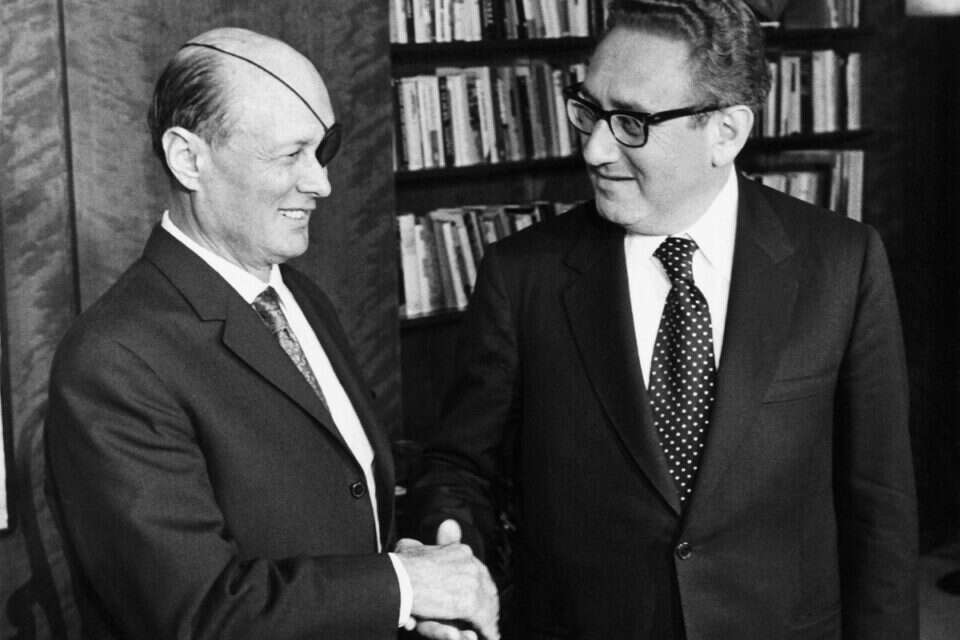Henry Kissinger, who died last night, played a significant role in shaping U.S. foreign policy during the second half of the 20th century, particularly in its involvement in the conflict between Israel and the Palestinian Authority. We asked ChatGPT to list 7 surprising facts related to the interactions between Kissinger and his people's homeland, which over the years has made every effort to prove that he does not acquire dual loyalty to it:
1. Architect of "skip diplomacy":
Kissinger pioneered the phenomenon known as "skip diplomacy." During the Yom Kippur War, he negotiated between Israel and Egypt, skipping back and forth between the two countries, helping to achieve a ceasefire, and later a peace agreement.
2. Unorthodox channels:
Kissinger used behind-the-scenes contacts to communicate with Israeli and Arab officials. This covert communication was essential in facilitating diplomatic negotiations, especially during the Second Sinai Agreement in 1975.
3. Soviet ties:
Despite the rivalry in the Cold War, Kissinger collaborated with the Soviet Union (then Egypt's patron) to broker peace treaties in the Middle East. The Geneva Conference of 1973, which dealt with finding a diplomatic solution to the Arab-Israeli conflict, was supported by both the United States and Russia.
4. The Second Sinai Agreement:
Kissinger played a central role in negotiating the Second Sinai Agreement between Israel and Egypt. This agreement included significant land movements, with Israel withdrawing from parts of the Sinai Peninsula. However, he was accused of favoring Israel.
5. Nobel Peace Prize:
In 1973, Kissinger was awarded the Nobel Peace Prize for his efforts in negotiating a ceasefire during the Yom Kippur War. However, the decision sparked controversy, and two members of the Nobel Committee resigned in protest. The reason had nothing to do with us, but together with him he won the prize of the Vietnamese revolutionary Le Deck Tho, who refused to share the prize with the representative of the country that was still waging war in his country at the time.
6. Overall vision:
Although the Camp David Accords focused on Egypt, Kissinger included a plan for Palestinian autonomy in one of the earliest attempts to address the Palestinian issue in the context of a broader peace in the Middle East.
7. Realpolitik:
Kissinger's approach to the Middle East was characterized by realpolitik, prioritizing strategic interests over ideological concerns. This led to pragmatic alliances and negotiations, which sometimes drew criticism for lacking moral considerations and, of course, lacking sympathy for the nation-state of the people to which they belonged.
Wrong? We'll fix it! If you find a mistake in the article, please share with us

